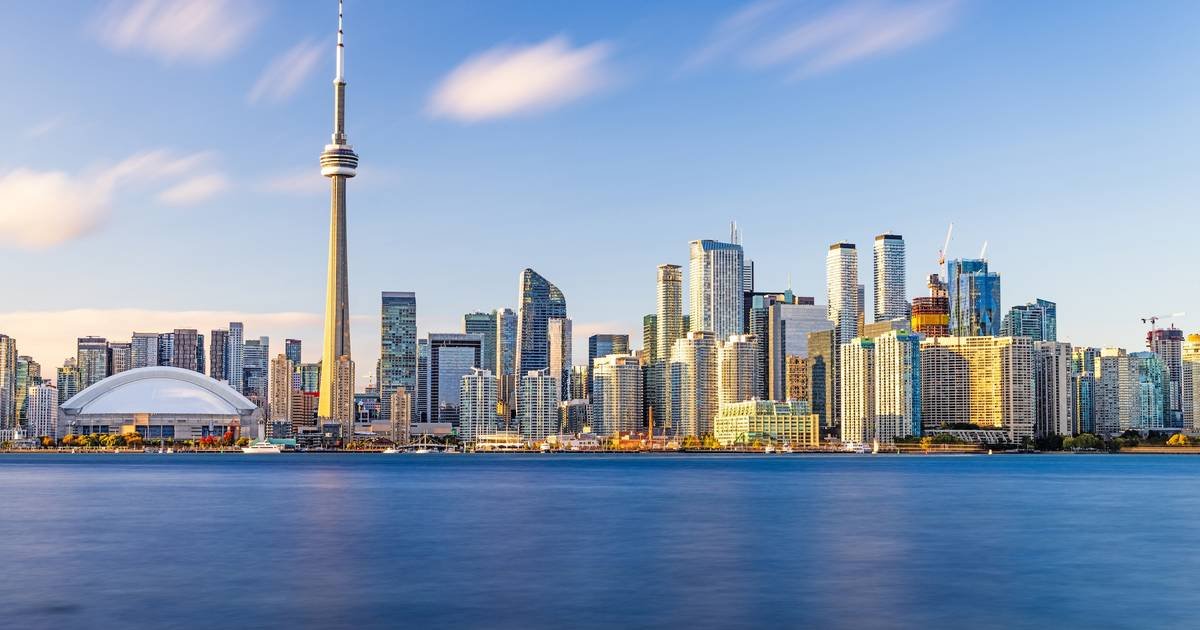Toronto has managed to secure a prestigious spot among the world’s elite urban centres thanks to its high economic stability and large foreign-born population, according to the Oxford Economics Global Cities Index 2025.
The report unveils the ranking of the top 50 cities across the world and provides an overview of the attractiveness of city economies based on a set of metrics. Cities are given scores across five main categories, namely Economics, Human Capital, Quality of Life, Environment, and Governance.
For example, under the Economics category, cities are analyzed based on their economic size, structure, and growth, while the Human Capital category observes the educational and business environments of each city. The Quality of Life category assesses the well-being of residents, health outcomes, and access to amenities.
Cities are also given a score based on their approach to climate change-related issues (Environment category) and their political stability (Governance category).
“The global economic environment is evolving. Over the past year, heightened geopolitical tensions and a rise in economic nationalism have contributed to increased levels of uncertainty and have adversely affected global economic growth. As a result, businesses and policymakers are navigating a complex landscape that requires adaptive strategies to mitigate risks and capitalize on emerging opportunities,” said Mark Britton, Director of City Services at Oxford Economics.
“The significance of cities in this period of uncertainty can’t be overstated. They serve not only as centres of resilience but also as engines of adaptation and innovation, owing to their dynamic networks of businesses, institutions, and people.”
Eight of the top 10 cities in the world are the same as last year in the 2025 edition, and New York City and London managed to reclaim the top spots for the second year in a row.
Overall, Toronto ranked #20 in the world and was the highest-scoring Canadian city included in the index. Given that it’s Canada’s premier centre for business, finance, culture, and art, Toronto was positioned in the top 20 for both the Economics (19th) and Human Capital (13th) categories.
However, just a year ago, Toronto was notably absent from the 2024 ranking of the top cities across the world. Toronto also failed to land in the most liveable cities report from the Economist Intelligence Unit (EIU) in 2024.
“Toronto boasts one of the most historically stable economies in North America, yet it has not sacrificed its robust GDP and employment growth to achieve this feat,” the report reads, adding that the city has been able to sustain its growth thanks to its high levels of in-migration, particularly from international immigrants.
Toronto’s Human Capital score was also boosted by its role as a corporate and educational hub. The report notes that Canada’s five largest banks are headquartered here, as well as several universities, with the University of Toronto being a “notable trailblazer” in the global medical field.
However, the city does have some weaknesses, particularly in the Quality of Life and Environment categories.
“While Toronto’s rapid population growth of the past few years has boosted its Human Capital score, it may have negatively affected the city’s Quality of Life score. The large influx of new residents has strained the metro’s already expensive housing market. With housing supply unable to keep up with demand, unaffordability remains near record highs,” the index reads.
Oxford economists add that Toronto residents spend more of their income on housing than residents of nearly every other city in the world. Still, Toronto manages to rank in the top quartile in Quality of Life (240th), thanks to its high levels of life expectancy and income equality.
Under the Environment category, Toronto lost points due to its struggles with significant temperature anomalies, particularly in the winter, placing 224th overall. Despite the two setbacks, Toronto was also recognized as one of the best cities under the Governance category (27th).
As part of the report, cities were classified into archetypes based on the indicators that comprise the Global Cities Index, which allows them to be compared alongside others that share similar characteristics.
Toronto was classified as one of the “Global Leaders,” which is a true global city that drives the world economy, and is a financial hub with many corporate headquarters and universities.
Other “Global Leaders” include Beijing, Boston, Chicago, Dallas, Hong Kong, London, Los Angeles, Madrid, Munich, New York, Paris, San Francisco, San Jose, Seattle, Seoul, Shanghai, Singapore, Sydney, Tokyo, and Washington D.C.
These are the top 10 global cities, according to the index:
- New York, U.S.
- London, U.K.
- Paris, France
- San Jose, U.S.
- Seattle, U.S.
- Melbourne, Australia
- Sydney, Australia
- Boston, U.S.
- Tokyo, Japan
- San Francisco, U.S.





